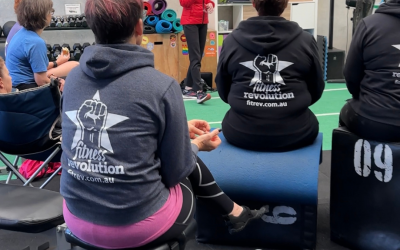“I should change, but I’ve tried and failed.” Does this sound familiar? Often, changing habits does seem insurmountable. Many of us simply don’t have enough motivation to change our habits – all of our bad habits – in a way that would truly affect our health. We cling to them because we see them as rewards.
But your habits determine your physical and mental health. Below is a strategy to help you focus on daily activities that enable you to change and eliminate bad habits.
Breaking A Bad Habit
To begin with, choose one unhealthy habit you wish to eliminate or change. Or, choose a healthy habit you want to adopt as part of your behaviour.
If it is a habit to eliminate, you may wish to go “cold turkey” or have a gradual tapering off. You need to be realistic about what you can do and not set yourself up for failure.
Caution: If it is a drug or chemical habit you are planning on eliminating, be sure to obtain an expert’s opinion as to whether you need to taper off usage as opposed to quitting cold turkey.
Now that you have decided which unhealthy habit to eliminate, or new habit to adopt, decide on the date you will begin your behaviour change. Give this date a good deal of thought and then write it down. For example, “On November 1, 2013, I will become a non-smoker”
Helpful Suggestions
Your target date has arrived. Here are some helpful suggestions for habit change:
Identify what needs were met by the habit and find other ways to meet those needs. For example, did it distract you when you were feeling low, hungry or bored? Did it bring variety into your day or comfort you? What else can you do to meet these needs that won’t harm your health? Find substitute routines and write these down. Be prepared for people who may try to sabotage your change, especially when the habit involves social contact (eg: smoking, eating cakes at morning tea etc) as they may feel you are withdrawing contact. Write down your goal. There is magic in the written word when it applies to you. State your goal in positive terms, such as “I want to be lean and physically fit,” instead of “I’ve got to get this flabby body out there huffing and puffing.” So, begin with writing down, as a positive goal, the habit you will change. List your reasons for changing or eliminating your habit. Writing it down will force you to think in specific terms what this habit represents in your life and the results changing the habit will bring. This will also help with your commitment toward taking positive action. Recruit helpers for support. Explain to them why you are making this change. Ask for their support. Their support may be needed. Understand that they may not be consciously trying to sabotage you. Reassure them that you are still yourself but want to change a habit and need support, they are unlikely to persist when they realise you are serious. Continue reading below…
Sustaining Motivation The following are some suggestions to follow each day in order to sustain motivation and determination:
Review your list of reasons for quitting or changing. Create mental pictures of yourself as having already succeeded with your habit change. Make affirmations, positive self-statements about your habit change. For example, “I am filled with so much health and vitality, all I need is within me now.” Reward yourself. Make up a list of self-rewards. Reward yourself verbally. Remember to take one day at a time. If you do backslide, don’t label yourself as having failed. Get out your list or reasons for quitting or changing and begin again. Fatigue, boredom, depression, stress can all make it difficult to stick with your program. But having a relapse isn’t as important as how you deal with the relapse. If you are so devastated by failure that you call your good intentions into question, which will make habit change harder for you. But, if you allow for an occasional relapse and treat it as nothing more than a slight mistake that teaches you something, then you’re on the right track.
Follow the suggestions in this article, adopt the more helpful attitude of evaluating your progress and accepting relapses, and you will find yourself reaching many of your goals. You will have achieved true behaviour change.
Fitness Revolution Mobile Personal Training & Group Fitness Belmont & Surrounds




0 Comments